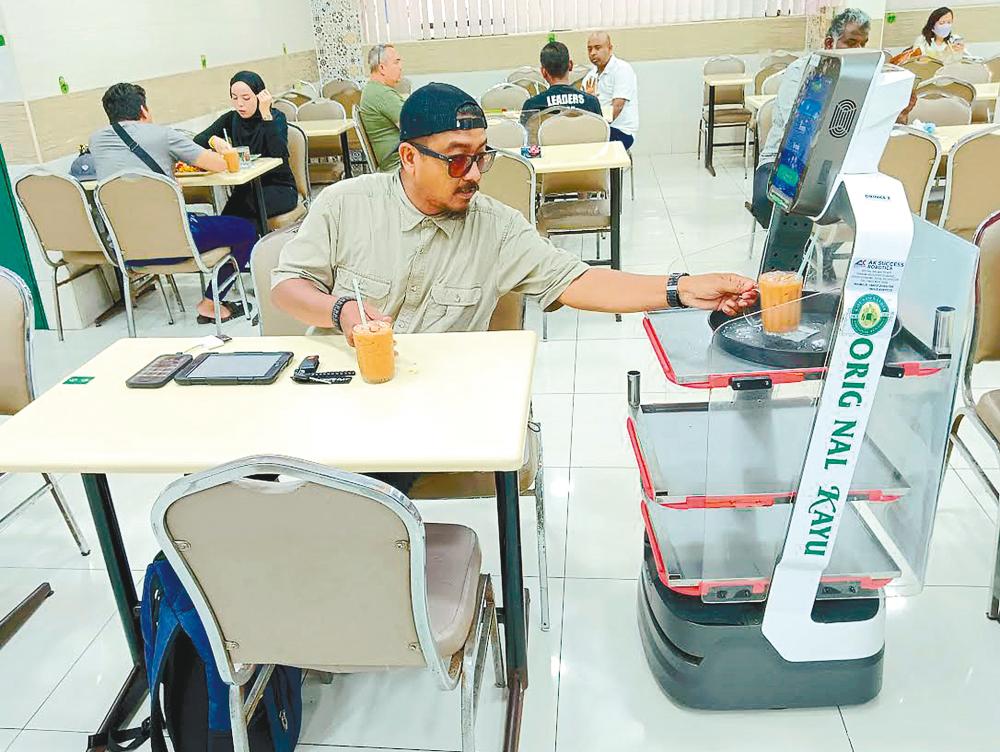PETALING JAYA: Malaysia is set to see major changes in the employment market, with many skill sets made obsolete and new ones required.
This is due to the integration of robots in the manufacturing, services, transportation, construction and agriculture sectors, with the robotics market projected to reach RM103.1 billion by 2030.
Science, Technology, and Innovation Ministry deputy secretary-general Datuk Dr Mohd Nor Azman Hassan told theSun the figure exceeds the targeted amount outlined in the National Robotics Roadmap 2021-2030.
“Despite the economic challenges posed by the Covid-19 pandemic, service robots achieved about RM92.29 billion in market value last year.
“This advancement underscores the robotic sector’s potential and highlights its pivotal role in shaping Malaysia’s technological landscape,” he said.
Prof Dr Vinesh Thiruchelvam, who is chief innovation and enterprise officer at a private university, said recent advancements in robotic technology are reshaping industries at an unprecedented pace.
“In healthcare, surgical robots offer unparalleled precision, facilitating delicate procedures like neurosurgery with enhanced outcomes. This has led to reduced patient discomfort and faster recovery.
“A groundbreaking innovation includes a robotic model of the human heart right ventricle. It combines synthetic muscles with genuine tissues and replicates natural blood pumping actions and valve structures.”
In transportation, he said the sector is witnessing a rise of drone deliveries and self-driving vehicles that promise lower accident rates and optimal fuel consumption.
Vinesh said said to bolster the safety and reliability of robotic systems, particularly in human-centric environments, key standards and guidelines are rigorously applied.
“The Robotics Industry Association and the International Organisation for Standardisation have set forth pivotal benchmarks, detailing safety design protocols and performance metrics.
“This ensures meticulous risk assessment and measures the efficacy of safety functions through performance levels,” he said, adding that the integration of robotic technologies in society raises significant ethical concerns, especially about job displacement and privacy concerns.
He said while robots may not lead to mass unemployment, they could alter the demand for certain skills and promote more flexible work arrangements.
“Studies suggest that for every additional robot per thousand workers, the employment-to-population ratio may decrease by up to 0.34%, accompanied by a salary decline of up to 0.5%.”
However, Malaysian Employers Federation president Datuk Dr Syed Hussain Syed Husman said compared with large corporations, the use of robotics differs between micro, small and medium enterprises (MSME) due to constraints in finances and resources.
“While MSME account for a mere 3% to 5% market share in robotics adoption, multinationals and major corporations lead the charge.”
Syed Hussain said it is imperative to recognise that robots streamline repetitive and hazardous tasks. In the process, they offer opportunities for upskilling and reskilling, which propels the workforce towards more value-added roles.
He added that as industries evolve and infuse more advanced technologies, employees will face challenges in ensuring their skill sets remain relevant.
“Failing to adapt to these changes could lead to a mismatch between an individual’s skills and market demands. It may even make certain skills obsolete due to the use of advanced technologies.
“This could potentially render the workforce obsolete in their current roles, pose a threat to job security and worsen income disparities.”
Syed Hussain also said to remain relevant in such an evolving landscape, the workforce must prioritise upskilling and reskilling, and align capabilities with market demands.









